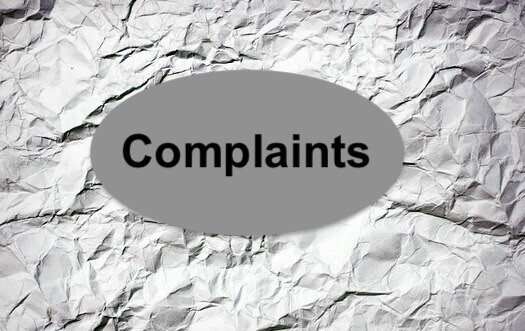 Customer complaints are often quickly dismissed, when they may provide a gold mine of information. That said, there are those, who are chronic complainers and will never be happy with anything.
Customer complaints are often quickly dismissed, when they may provide a gold mine of information. That said, there are those, who are chronic complainers and will never be happy with anything.
But mixed in with their thoughts may be some legitimate problems that should be addressed. Keeping an open mind, may unlock future growth, as well as prevent a customer exodus.
Recently, I was issued a replacement credit card, with a new account number. This meant that any bills I pay with autopay, needed to be updated. I had to visit about a dozen business websites and enter the new account information.
While far from a Herculean task, I noticed the various companies handled the process in different ways. Some made it easy, while others made it confusing. All of this involved the same process.
In one instance, I had to go to an online chat for assistance. Once I was given the insight necessary to complete the process, I was asked if there were any other issues that needed addressing.
I took this as an opportunity for feedback and I responded by saying, “Maybe the information you gave me should be on your website. It would make the process easier for people, as there’s no other way for anyone to know what you need them to do.”
The response I received made me believe that my complaint would receive zero consideration. That got me thinking about how businesses handle customer complaints.
Consumer Complaints Are Feedback
It’s interesting how some businesses ask for feedback but really only want to hear good stuff. While praise is good, the negative feedback may provide a key to customer retention.
Not being willing to consider your shortcomings may limit your future potential. And even if a problem can’t be solved in the moment, it’s smart to acknowledge it.
And if you just have employees ask an open-ended question, with little consideration for any negative responses, then you’re not really using questions to generate potential change.
Do Customer Complaints Define You?
With those companies that made it easy for me to update my credit card info, my opinion of them has not changed. For those that made the process more painful or challenging, my opinion of their brand has gone down.
Keep in mind this process is outside the core offerings of the business. But when I evaluate them, the small problem is part of the equation of whether I continue to do business with them.
If there’s a business, with the same level of overall quality, that doesn’t have the little problem that bugs me, then I’ll likely switch. An issue outside of what you do, could impact customer loyalty.
Is There a Forum for Fixing Problems?
When customers share problems or concerns, are those thoughts collected, collected and quickly dismissed, or collected and discussed with a group? Simply collecting customer complaints doesn’t mean any improvement will happen.
Create a committee to consider the feedback and empower them to make changes. Again, not every complaint has merit or can be solved but they should be reviewed.
It may also be smart to provide feedback to the person who submitted the issue. This can range from a simple acknowledgment to letting them know that changes that are coming, thanks to people like them.
You Should Be Worried About Complaints
In a busy world, not everyone has time to give you complaints. They’ll simply take their business elsewhere and you’ll never know why.
If customer retention is a growing challenge, then you probably need to pay more attention to the customer complaints you’re receiving. One complaint may represent the view held by many.






